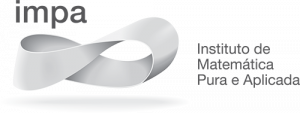An introduction to stochastic differential equations with applications to fluid dynamics
IMPA Summer Doctorate Course
Instructors
Theodore D. Drivas
email: tdrivas@math.princeton.edu
website: https://web.math.princeton.edu/~tdrivas
Simon Thalabard
email: simon.thalabard@impa.br
website: https://sites.google.com/site/simthalabard
LECTURE NOTES
Week 1: Basics of Probability, Direct Ensemble Methods, Forward propagators
Week 2: Brownian Motion (and Slides)
Week 3: Stationary processes
Week 4: Navier-Stokes equations, Scaling exponents and Multi-fractal formalism
Week 5: Stochastic Integration, Conventions (Slides) and Numerics (Slides)
EXERCISES
Week 1: Liouville Theorem and Illustrating Slides
Week 2: Gaussian processes (and examples)
Week 3: Taylor diffusion (and examples)
Week 4: Mori-Zwanzig formalism
Week 5: Einstein diffusivity, Itô's formula
SYLLABUS
Course Description
This course will provide a practical introduction to stochastic differential equations, with a focus on applications in fluid dynamics. Specific topics include: basic probability, statistical dynamics (Itô calculus, moment hierarchies, Liouville/forward equations, path-integral methods) and basic fluid dynamics and turbulence theory. The Kraichnan model for turbulent advection of a passive scalar will be discussed in depth.
Pre-Requisites
There are no formal prerequisites but an undergraduate courses in differential equations is very highly recommended. Some familiarity with a coding language such as MATLAB or python is also recommended. Concerned students should discuss their preparation with the instructors.
Textbooks
The primary source for the course will be lecture notes, which will be distributed. In addition, there may be cited journal articles. Recommended, but not required, texts are:
Cardy, J., Falkovich, G., and Gawe¸dzki, K. (2008). Non-equilibrium statistical mechanics and turbulence (Vol. 355). Cambridge University Press.
Øksendal, Bernt. Stochastic differential equations. Springer, Berlin, Heidelberg, 2003. 65-84.
Risken, Hannes. The Fokker-Planck Equation. Springer, Berlin, Heidelberg, 1996. 63-95.
Frisch, U. Turbulence: the Legacy of A.N. Kolmogorov. Cambridge University Press, Cambridge, 1995. Chapter 3.
Grading/Class Project
There will not be homework or examinations in the course. Instead, class time on Fridays will be devoted to working in small groups on mini–projects. Further into the semester, students must work either by themselves or in pairs on a final project which can either be (i) independent research or (ii) careful reading of an appropriate journal article. A written report must be provided for both of these options, and the topic for research of paper to be read must first be discussed with the instructors. The grade for the course will be based primarily on the result of these projects.


